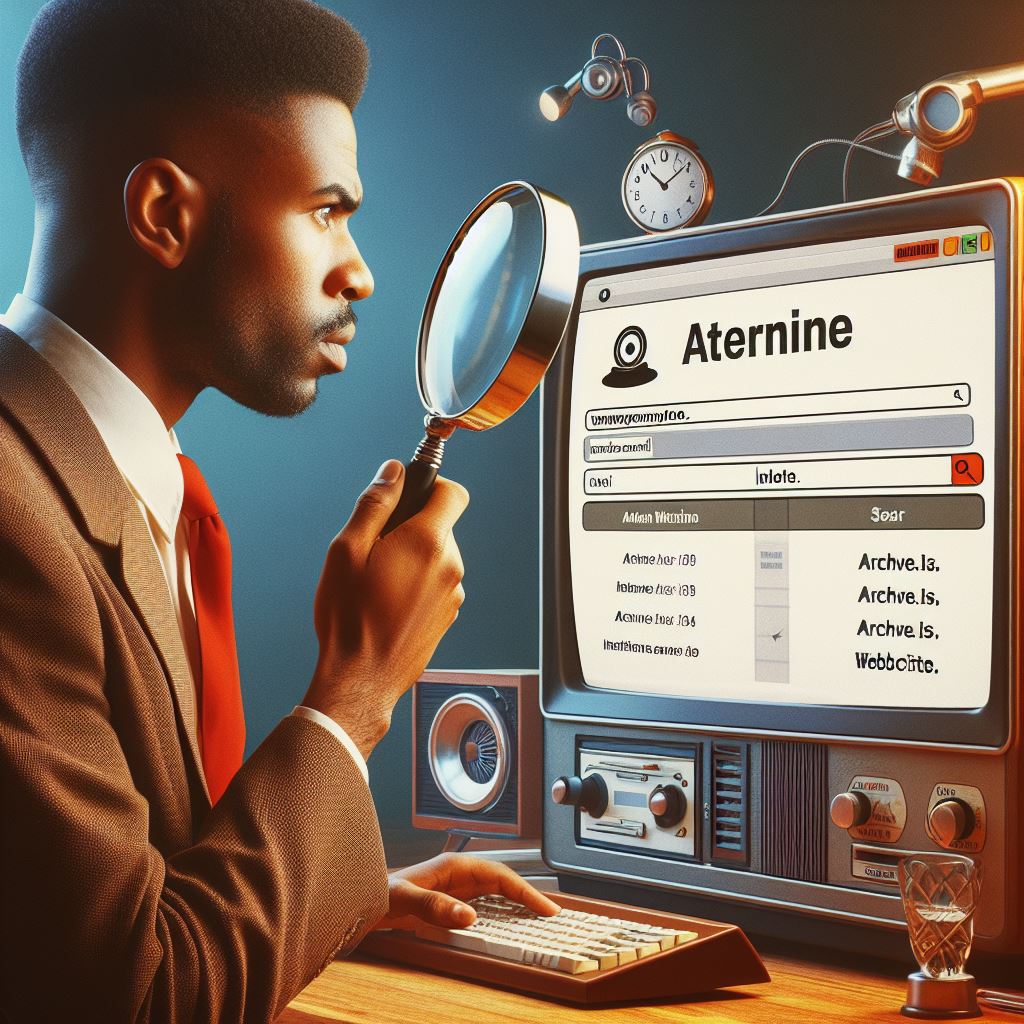In the vast expanse of the internet, preserving web history is crucial for research, historical documentation, and nostalgia. While the Wayback Machine has long been the go-to tool for accessing archived web pages, there are several alternatives that offer similar functionalities and unique features. In this article, we’ll explore some of the best Wayback Machine alternatives and how they can help you preserve and explore the history of the web.
Understanding the Need for Wayback Machine Alternatives
The Wayback Machine, operated by the Internet Archive, is an invaluable resource for accessing archived versions of web pages. However, there may be instances where users require additional features or alternatives due to various reasons such as accessibility, interface preferences, or specific needs.
Top Wayback Machine Alternatives
1. Archive.is
Archive.is, also known as “The Wayback Machine Alternative,” is a web archiving service that allows users to take snapshots of web pages and store them indefinitely. Unlike the Wayback Machine, Archive.is provides a simplified interface and allows users to archive pages quickly without the need for registration.
2. Archive.today
Similar to Archive.is, Archive.today offers users the ability to capture and store web pages for future reference. One of the unique features of Archive.today is its focus on preserving web pages in their original state, including dynamic content and user-generated content.
3. Screenshots.com
Screenshots.com specializes in capturing and archiving screenshots of web pages, offering users a visual representation of how websites appeared at different points in time. With its extensive database of screenshots, Screenshots.com provides users with a convenient way to explore the visual history of the web.
4. Webcite
Webcite is a scholarly tool that allows users to cite and archive web pages for academic and research purposes. With its focus on preserving web content for citation and reference, Webcite offers users a reliable alternative to the Wayback Machine for scholarly research and documentation.
5. Perma.cc
Perma.cc is a web archiving service specifically designed for academic and legal research. With Perma.cc, users can create permanent links to archived web pages, ensuring that citations and references remain valid and accessible over time.
Choosing the Right Wayback Machine Alternative
When selecting a Wayback Machine alternative, it’s essential to consider factors such as ease of use, features, reliability, and compatibility with your specific needs. Whether you’re an academic researcher, a historian, or simply a curious internet user, exploring different alternatives can help you find the right tool for preserving and exploring the history of the web.
Internet Archive: Preserving Digital History
The Internet Archive is a nonprofit organization dedicated to preserving digital content for future generations. It serves as a vast digital library, offering free access to millions of books, movies, software, music, and websites. With its mission to provide universal access to knowledge, the Internet Archive plays a crucial role in archiving and preserving digital history for the benefit of researchers, historians, and the general public.
Conclusion: Diversifying Your Web Archiving Toolkit
In conclusion, while the Wayback Machine remains a powerful tool for accessing archived web pages, there are several alternatives available that offer unique features and functionalities. By exploring different Wayback Machine alternatives, users can diversify their web archiving toolkit and find the right tool for their specific needs. Whether you’re looking to preserve web history for research, documentation, or personal interest, these alternatives offer valuable resources for accessing and exploring the rich tapestry of the internet’s past.
FAQs (Frequently Asked Questions)
1. What are Wayback Machine alternatives?
Wayback Machine alternatives are web archiving services or tools that offer similar functionalities to the Wayback Machine, allowing users to access archived versions of web pages and preserve web history.
2. Why would I need a Wayback Machine alternative?
While the Wayback Machine is a valuable resource, there may be instances where users require additional features or alternatives due to various reasons such as accessibility, interface preferences, or specific needs.
3. Are Wayback Machine alternatives free to use?
Many Wayback Machine alternatives offer free access to basic features, while some may offer premium plans with additional functionalities or advanced features. Users should check the pricing and features of each alternative to determine the best option for their needs.
4. Can I trust the accuracy and reliability of Wayback Machine alternatives?
Similar to the Wayback Machine, the accuracy and reliability of Wayback Machine alternatives may vary depending on factors such as the frequency of snapshots, the completeness of archived content, and the integrity of the archiving process. Users should exercise caution and verify the accuracy of archived content when using any web archiving service or tool.
5. How do I choose the right Wayback Machine alternative?
When selecting a Wayback Machine alternative, consider factors such as ease of use, features, reliability, compatibility with your specific needs, and the reputation of the service or tool. It may be helpful to try out different alternatives and compare their features before making a decision.
6. Can I contribute to Wayback Machine alternatives?
Some Wayback Machine alternatives may allow users to contribute to the archiving process by submitting URLs or snapshots for archiving. Users should check the documentation or support resources of each alternative to learn more about contributing to the archiving efforts.
7. Are Wayback Machine alternatives legal to use?
Yes, in most cases, Wayback Machine alternatives are legal to use for accessing archived web pages and preserving web history. However, users should be aware of copyright laws and usage restrictions when accessing and using archived content from any web archiving service or tool.
8. How often are Wayback Machine alternatives updated?
The frequency of updates and snapshots may vary depending on the specific Wayback Machine alternative and its archiving practices. Users should refer to the documentation or support resources of each alternative to learn more about its archiving frequency and practices.




